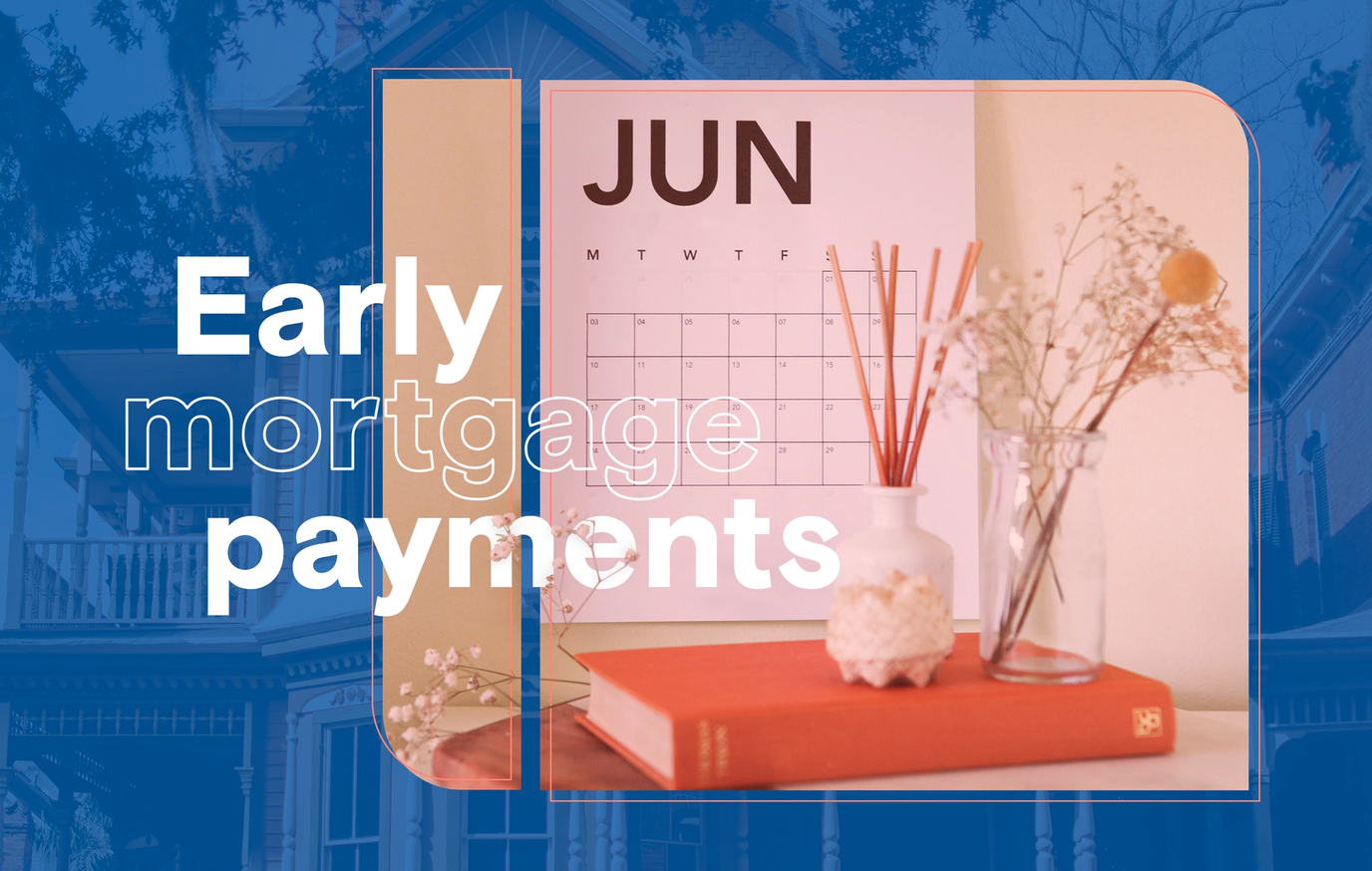
Rounding it up
Paying off your mortgage early can be a great idea, but it depends on your financial situation.
Making extra monthly payments on your mortgage will reduce the amount of interest you pay over time and doing so will help you become debt-free years ahead of schedule.
Depending on your financial situation, it might make more sense to invest your spare cash in an RRSP or TFSA.
While paying off your mortgage early is awesome, doing so shouldn’t come at the expense of your other finances.
Whether you’re a first-time homebuyer or you’re a longtime member of the homeowner’s club, your mortgage is bound to play a major role in your financial life.
In fact, for many of us, a home is one of the biggest investments we’ll make. But for the majority of Canadians, buying a house or an apartment outright just isn’t possible. Thankfully, mortgages make owning a home feasible for a wide range of people, even if it comes with a sizable amount of debt.
If you’re not exactly thrilled at the idea of having hundreds of thousands of dollars in debt following you around for the next few decades, you might be wondering if you should try to pay off your mortgage early.
The answer?
It depends. There are many fantastic benefits to paying off your mortgage earlier than scheduled, especially if you don’t like having debt. But mortgages are complex financial tools and you may find that your spare cash might be better invested elsewhere in the short term.
Although we can’t tell you whether you should pay your mortgage off early, we can help you decide what’s best for you. Here’s everything you ought to consider before you start chipping away at your mortgage.
Is it smart to pay off your house early?
Let’s say that you recently received a pay raise at work or you’ve found yourself in possession of a bit of spare cash. You should use this newfound money to pay off your mortgage, right?
Well, it’s not that simple. Paying off your mortgage early is a big decision that can have a range of different financial benefits and unintended consequences. You should have a solid understanding of the pros and cons of doing so before committing.
To get you started, here’s an in-depth look at the advantages and disadvantages of early repayment of your mortgage.
The benefits of paying off your mortgage
If paying off your mortgage early sounds like a solid financial move to you, then you’re not alone. There are fantastic perks to repaying your home loan ahead of schedule and eliminating your monthly housing payment:
Debt-free living – If there’s one reason to pay off your mortgage, it’s this one. For those of us who have carried around student loans and other debts, becoming completely debt-free is a major life goal. Ridding yourself of your mortgage by paying it off early can earn you years of debt-free living to enjoy.
Reduction of interest payments – When you take out a mortgage, you agree to pay both the principal balance of your loan, plus interest on that money. Paying off your loan early means that you’ll limit the amount spent on interest in the long-term, saving you potentially thousands of dollars over the lifetime of your mortgage.
Potential return on investment – Although nothing is guaranteed when it comes to investments, real estate has historically had a great return on investment. As a result, paying your mortgage off ahead of time means that you can expect to sell your home in the future and walk away with some profit to spend as you please.
Extra cash in your pocket – For many of us, our monthly mortgage payments represent a substantial chunk of our living expenses. By paying your mortgage off sooner than anticipated, you can save yourself hundreds, if not thousands, of dollars each month.
Housing security – When you own your home outright, you don’t need to worry about a landlord terminating your lease as a renter or a bank foreclosing on your home. Rather, by paying off your mortgage, you can get the peace of mind you need, knowing that no one can take your home away from you.
SPEND SMARTER. SAVE FASTER
Are there downsides to paying off your mortgage early?
While living debt-free in your own home might sound awesome (because it is), it’s hard to deny that there are some downsides to paying off your mortgage early. Here are some key drawbacks of early mortgage repayment to consider before you start supplementing your monthly payments:
Decreased short-term cash reserves – For many Canadians, paying off a mortgage early means supplementing your monthly payments with any spare change you have in your budget. At the end of the day, if repaying your mortgage early means that you don’t have money left over for an emergency fund or to quickly pay off high-interest credit card debt, it might not be a good idea.
Loss of other investment opportunities – If paying off your mortgage early limits your ability to contribute to your RRSP or TFSA, you might be hurting your long-term financial prospects. Of course, repaying your loan now will reduce the amount of interest that you pay over time. But, since rates of returns on investments in your retirement plan often exceed the interest you pay on a mortgage, you might not want to put all your eggs in your housing basket. Rather, you’d likely be better off paying that extra interest over the long term if it means that you can take advantage of the power of compound interest on your retirement investments.
Lack of investment diversity – As we’ve already mentioned, real estate has historically been a superb investment. Take one look at the housing market boom during COVID-19 and you’ll see what we mean. However, real estate isn’t the only investment you should make in your life, and paying off your mortgage early could limit your ability to diversify your assets. For example, if you spend so much of your spare cash on real estate that you don’t have anything left to invest in stocks, bonds, ETFs, mutual funds, commodities, or, heck, even cryptocurrency, then you’ll be in a tough spot if the housing market drops when you need cash.
Extra fees – If you have a closed mortgage, your lender could charge you extra fees for paying off your loan ahead of time. While inconvenient, these fees may not be a dealbreaker, so do your math and then make the call on whether it’s worth paying off your mortgage early.
How to decide if you should pay off your mortgage
Now that you understand some of the pros and cons of early mortgage repayment, let’s look at if it’s the right choice for your financial life.
Since the decision to repay your mortgage early can have profound positive and not-so-positive impacts on your financial well-being, we couldn’t possibly give you a clear-cut answer as to whether it’s the best course of action for you. Nevertheless, there are some questions that you can ask yourself to weigh the pros and cons of early mortgage repayment.
If you’re considering paying your home loan off early, ask yourself the following questions:
Do I have enough cash on hand to handle emergency expenses?
Have I already paid off any other high-interest loans or debt?
Will I still be able to contribute to my retirement plan and savings accounts each month if I pay my mortgage off early?
Do I already have a well-diversified investment portfolio that extends beyond my real estate assets?
If you found that your answer to most or all of these questions was a resounding “yes,” then chances are pretty high that paying off your mortgage early might be a good decision.
Alternatively, if you realized that your answer to most of these questions was “no,” then you may want to focus on repaying other debts and building your savings rather than paying off your loan. That’s because, in these situations, the long-term benefits of these other great money moves will have a larger positive impact on your financial life than paying off your mortgage.
SPEND SMARTER. SAVE FASTER
Alternatives to paying off a mortgage early
If you’ve decided that repaying your mortgage early is a solid financial move in your life—congrats! You’re well on your way toward debt-free living. But if you realized that early home loan repayment isn’t right for you, fear not, there are other smart moves that you can make with your money.
In particular, you might consider doing one of the following with your money before you tackle your mortgage:
Building up an emergency fund
Paying off higher interest debt
Establishing your retirement account
Diversifying your current investment portfolio
Once you feel like you have a good head start on your emergency fund, debt repayment, and retirement savings, you can consider paying off your mortgage early. Until then, however, your money will likely be better spent elsewhere.
Paying off a mortgage early: Is it really a good idea?
Paying off a mortgage early can be a great idea if you’re looking to reduce your interest payments and live debt-free later in life. However, you should generally only consider early mortgage repayment if you already have a solid financial situation with a decent amount of savings and little to no outstanding high-interest debt. That way you can make the most of your money.

About the author
Gaby Pilson is a writer, educator, travel guide, and lover of all things personal finance. She’s passionate about helping people feel empowered to take control of their financial lives by making investing, budgeting, and money-saving resources accessible to everyone.
Read more about this author